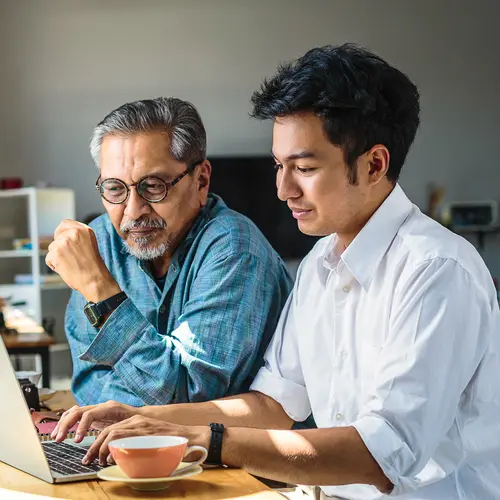Preparing for a Colonoscopy

Hide Video Transcript
Video Transcript
Jean Youngblood Endoscopy nurse, Emory Hospital
I'm calling you about your colonoscopy that's scheduled for next week… Seven days prior to the exam you need to stop anti-inflammatory medications and blood thinner medications… Two days prior you need to stop taking vitamins as well as iron supplements… You'll want to have foods that are high in fiber a couple of days prior to drinking of your solution… so you'll want to stay close to the restroom-obviously this solution is a laxative and we all know what laxatives do… Apple juice, white grape juice, Gatorade…you can have cola, you can have clear soup, you can have broth, bouillon… If it's not red or purple and you can see through it, you can have it. Cinnamon Sullivan, MD Anesthesiologist
Once we get you back there we're going to give you a little bit of oxygen in your nose… The doctor's going to ask you a couple of questions. Once they're done, we'll have you roll over onto your side… and then we're going to give you some more medicine and make you go off to sleep. You're going to feel something warm in your I-V. When an anesthesiologist is administering sedation for this procedure you're constantly monitored… We're watching your heart rate and rhythm, your blood pressure, your oxygen level and how deeply and how quickly you're breathing. Jennifer Christie, MD Gastroenterologist, Emory University Hospital
How ya doin'? More than likely you won't experience any discomfort during the procedure… you will feel some air and distention after the procedure because I have to put air into your bowel to expand the colon so that I can see polyps and any abnormalities. There are risks involved in the procedure. The three major risks involved include, infection, bleeding, particularly if we have to take out a large polyp, as well as perforation…or poking a hole somewhere in the bowel. However this is extremely rare. It happens in one percent of the patients. The beautiful thing about colonoscopy is that we can find polyps during the procedure and actually take them out… If we find something more serious like a cancer, we'll take a tissue sample and then do some other tests to determine how advanced or how localized the cancer is and send you to the appropriate specialist to help taken care of… Cinnamon Sullivan, MD Anesthesiologist
The nice thing about the drugs we use is that they come on fast and they go away fast. Okay your procedure's all done. Wake up. Take some deep breaths. 
